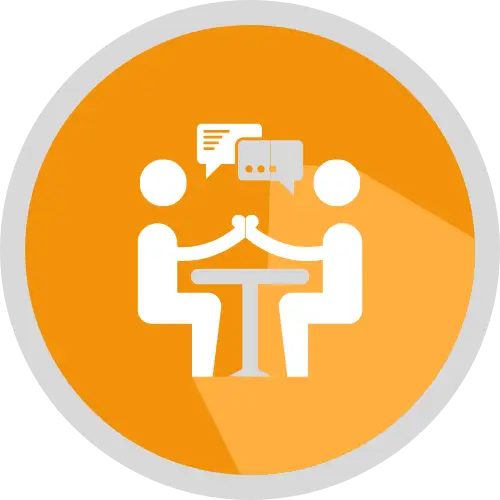“The Paradox of Spontaneity,” Padraic Gibson, family therapist and supervisor, explores one of the greatest behavioral paradoxes. This article examines how the contradictory demand for spontaneity can lead to stress, anxiety and anxiety disorders in various aspects of daily life. Through concrete examples and in-depth analyses, discover how to recognize and overcome these paradoxical situations to improve your mental well-being
What is a paradox?
Homer Simpson's character once asked the question: "Could God make a burrito so hot that even he couldn't eat it? Could he make a stone so heavy that even he couldn't lift it?" There is a strange problem in human life from which many of the major mental health problems arise. These are the behavioral effects of what is called a paradox. This is essentially any situation in which two messages contradict each other but are given at the same time. These problems are well known in philosophy, but they are rarely addressed in psychology. This is mainly because many psychologists and psychotherapists do not know what to do with it.
When someone asks you, directly or indirectly, to act spontaneously, you may find yourself awkwardly stuck, or even feel a distinct feeling of nausea. The spontaneity paradox can occur anywhere - within couples, families or at work. A communication paradox is one in which we receive two contradictory messages at the same time. This is the situation in which one person asks another for something that, in reality, can only happen spontaneously and naturally and cannot be asked or caused voluntarily - things such as laughter, love, interest, appreciation, desire, tenderness, etc. When this paradox occurs, we are caught in a double bind. For example, someone might say, "I'm taking a photo of you. Please smile. No! Not like that! A big, natural, spontaneous smile!
The unrealizable request
To ask “Be spontaneous!” is to demand behavior which, by its very nature, can only occur spontaneously and therefore cannot result from a request. For example, a well-meaning mother demands that her son study, not because she wants to, but because she wants him to want to, of his own free will. She wants spontaneous conformity, not just obedience to a rule.
A person suffering from insomnia is a great example of the "being spontaneous" paradox because they put themselves in this paradox of "being spontaneous"! The more she tries to force the natural phenomenon we call sleep to happen, the more she stays awake.
A patient who enters an episode of depression focuses on the positive aspects of their life and tries to get into a good mood or feel positive about their "good" life, but they find themselves trapped. The feelings he seeks to arouse are “spontaneous” and therefore cannot be imposed by force. His attempt to escape his depression only confirms and worsens what he is trying to escape.

Book an in-office consultation in Paris Montorgueuil or remotely by videoconference
We receive our patients from Monday to Friday.
To make an appointment you can call us on +33 (0) 1 48 07 40 40
or +33 (0) 6 03 24 81 65 or even make it directly online
by clicking here:
Violation of nature
Sexual arousal or orgasm can only happen spontaneously, because that's the kind of phenomenon they are. The more they are wanted, expected and desired, the less likely they are to happen. This is what we regularly see when men with sexual problems book a “spontaneous and planned” romantic weekend. We can then be assured that the very problem he or his partner seeks to solve will only be exacerbated. We can also see that the feelings, behaviors, and relationships that occur naturally can only occur naturally if we do not seek to cause them. They can only occur causally. It can also become a real challenge when athletes get stuck trying to perfect their skills, only to find that those skills increasingly elude them.
Overcoming the trap of forced spontaneity
Recognize it. Learn to detect when someone asks you to “act spontaneously.” Be aware of this request when it is meant but not said or when it is perversely implied. Your answer can be multiple. If you continually try to force spontaneous behavior, stop, breathe, and see if there is a way to let nature take its course.
Take an overview of the situation and the communication. If someone else puts you in a paradoxical situation, speak up. Explain the paradox and how you won't get stuck .
Don't overdo it. Some of us have a natural tendency, when faced with a difficult situation, to try and put more effort into fixing what's wrong. Most often, this results in a tendency to stubbornly reapply attempts at solutions that don't work, or to constantly test ourselves, always looking for new proof of our abilities. This has the effect of increasing our need for proof and, therefore, our personal insecurity. In other cases, our efforts are aimed at controlling our emotions and impulsivity. Also in this case, the most common result is a greater inability to control our emotional reactions. But it is also interesting to observe that people who manage to control their impulsivity very often find themselves in a process of obsessive control of their own reactions. This leads to a compulsive need for control, even over unimportant things. The end result is that when control is successful, the person loses control of the control and it becomes a compulsion.
I want to consult
References
Gibson, P. (2021). !2 Most Common Mental Traps. Strategic Science Books.





